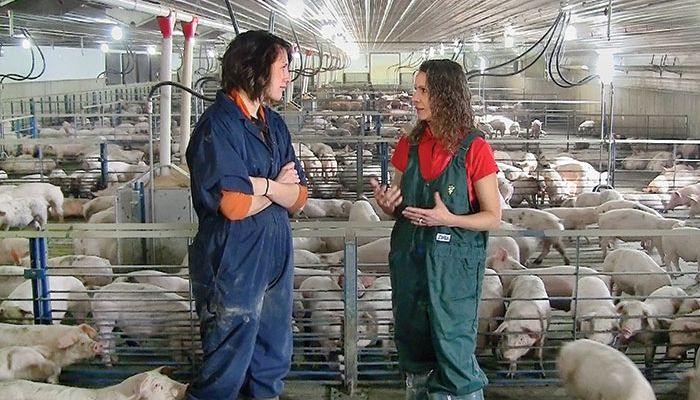Collaborating to keep animals healthy, antibiotics effective
Author
Published
2/22/2016
 Shortly after my husband and I moved into our home, our dog, Giovanni, began scratching his face and biting his paws. He didn’t show these signs before we moved, so my husband and I were concerned. We took Giovanni to our veterinarian, Dr. Munger, who then performed several tests to determine the root causes of his problem. An allergy test showed that he was allergic to nearly everything: dirt, pollen, grass—everything found outside, basically.
Shortly after my husband and I moved into our home, our dog, Giovanni, began scratching his face and biting his paws. He didn’t show these signs before we moved, so my husband and I were concerned. We took Giovanni to our veterinarian, Dr. Munger, who then performed several tests to determine the root causes of his problem. An allergy test showed that he was allergic to nearly everything: dirt, pollen, grass—everything found outside, basically.
While we couldn’t put our pup in a giant bubble to protect him, we were able to control his symptoms with medication.
Since then, Giovanni has developed other problems which require visits to our veterinarian. We keep in close contact with our vet to keep our dog healthy.
I saw that same kind of collaboration when I interviewed farmers and veterinarians for stories relating to changes in rules for administering antibiotics to farm animals.
Antibiotics are a key tool for livestock farmers. With proper veterinary oversight they use antibiotics to help keep herds healthy, so they can produce wholesome meat and milk for consumers. The livestock industry has been moving to take steps to ensure limited and judicious use of all antibiotics, not just those that are important for human medicine. And new guidance documents mean that livestock farmers will work even closer with their veterinarians to ensure judicious and proper use of antibiotics. You can a special report on antibiotic stewardship in livestock farming here.
At the same time, consumers have long been protected from antibiotic residues ending up in meat. U.S. farmers must follow a strict withdrawal period before they can send an animal treated with antibiotics to market, notes Peter Davies, a professor at the University of Minnesota’s College of Veterinary Medicine. If a cut of meat tests positive for antibiotic residues above a level deemed safe by the U.S. Food and Drug Administration (FDA), it is not allowed into the food supply, Davies said. Although research has never established a direct link between the use of medically important antibiotics used in raising food animals and antibiotic resistance, farmers and veterinarians are listening to consumers and are cautious in how they use antibiotics to treat livestock, Davies said.
Just as the farmer and veterinarian work to maintain proper antibiotic use in the care of their livestock, my husband and I work with our vet in the best interest of our dog.
 Like veterinarians who work with livestock farmers, we have open communication with our veterinarian. We talk about ways we can help our dog at home, and then visit Dr. Munger if the problems persist or require her consultation.
Like veterinarians who work with livestock farmers, we have open communication with our veterinarian. We talk about ways we can help our dog at home, and then visit Dr. Munger if the problems persist or require her consultation.
When Giovanni later developed itchy skin, we called our veterinarian to determine if there was something we could do to make him feel better. Like a farmer, we wanted to manage his health in the best way before adding an antibiotic or medication to his daily routine. Our veterinarian suggested we strap on boots to Giovanni’s paws before he went outside. Then he wouldn’t be exposed to the dirt that was causing an allergic reaction. When the problem didn’t clear up after a few days, we took Giovanni to the veterinarian, where she provided a wellness exam and prescribed a medication to clear up his sores.
She called within a few days to make sure the medication was helping to treat his sores.
Since then, we’ve found that Giovanni has a reaction to chicken protein. He can’t have the food or treats that contain chicken. Dr. Munger helped us research foods that would work for his allergy, and he’s been doing great ever since.
I’m grateful that our veterinarian takes the time to not only educate us on best management practices in our home to treat our dog, but also uses her knowledge of available medications to make the best treatment decisions for Giovanni.
It’s because of the care Dr. Munger provides that Giovanni is a healthy, happy pup (and no longer has to wear boots outside).
By Bethany Baratta. Bethany is commodities writer for the Iowa Farm Bureau Federation.